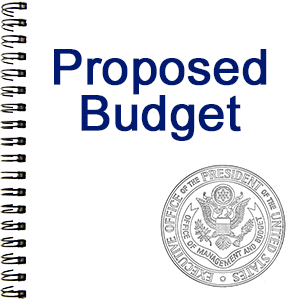AUCD Statement on Release of President's Budget Request
May 28, 2017
Andrew J. Imparato, JD
Executive Director
240-821-9370
[email protected]

|
| Download |
|
|
The Association of University Centers on Disabilities (AUCD) is greatly disappointed by the priorities reflected in the President's Fiscal Year 2018 Budget Request recently transmitted to Congress.
Current federal investments do not come close to meeting the needs of a growing and aging population of Americans with disabilities. Instead of investing to address this gap, the proposed budget represents an aggressive retreat from a decades-long, bipartisan commitment to supporting the health and independence of people with disabilities.
"There is no budget crisis requiring this level of fiscal austerity," said Andrew Imparato, executive director of AUCD. "Record numbers of people with disabilities are now employed and thriving in the community. By eliminating some programs and dramatically reducing others, this proposal puts the entire national support system for our community at risk."
A core principle of disability policy is the importance of including people with disabilities and our families in the policymaking process. This has made laws like the Developmental Disabilities Act and Workforce Innovation Opportunity Act stronger. This budget -- proposing radical changes to programs under both laws -- was developed without our input.
People with disabilities, especially those with severe disabilities, often rely on a complex array of supports across many areas of public policy to lead successful and productive lives in the community. Significant cuts include:
- More than $600 billion in cuts to Medicaid, the health and community living program millions of people with disabilities rely on for medical care and social supports.
- Over $72 billion cut from Social Security disability programs.
- A $47 million cut that would eliminate the Leadership Education in Neurodevelopmental and Related Disabilities (LEND) program administered by the Health Resources and Services Administration. Today, in 52 programs across 44 states and 3 U.S. territories, thousands of students, parents, and clinical professionals are receiving interdisciplinary training to improve the health of children with disabilities. LEND graduates have provided 81,167 diagnostic evaluations to children across the country with autism or other developmental disabilities, up from 55,777 just two years prior.
- $35 million cut from Centers for Disease Control and Prevention efforts in the surveillance and prevention of developmental disabilities.
- Nearly 20 percent cut from National Institutes of Health funding for research on the causes of and successful interventions to address disabilities.
- Funding to states for Councils on Developmental Disabilities, independent living services, and traumatic brain injury services would be eliminated, and replaced with a new grant program with less than half of the current funding levels for the three programs.
The Federal Budget is a statement of the nation's priorities. Many other proposed cuts not highlighted here are also greatly concerning. AUCD will work with Congress, our partners within the disability community and others fighting for civil rights, to ensure that our nation's historic and bipartisan commitment to the independence and inclusion of people with developmental and other disabilities is honored.
The Association of University Centers on Disabilities (AUCD), located in Silver Spring, MD, promotes and supports a national network of interdisciplinary centers on disabilities. The members of AUCD represent every U.S. state and territory. AUCD and its members work to advance policy and practice through research, education, leadership, and services for and with individuals with developmental and other disabilities, their families, and communities. For more information, visit AUCD's website, www.aucd.org.
###







